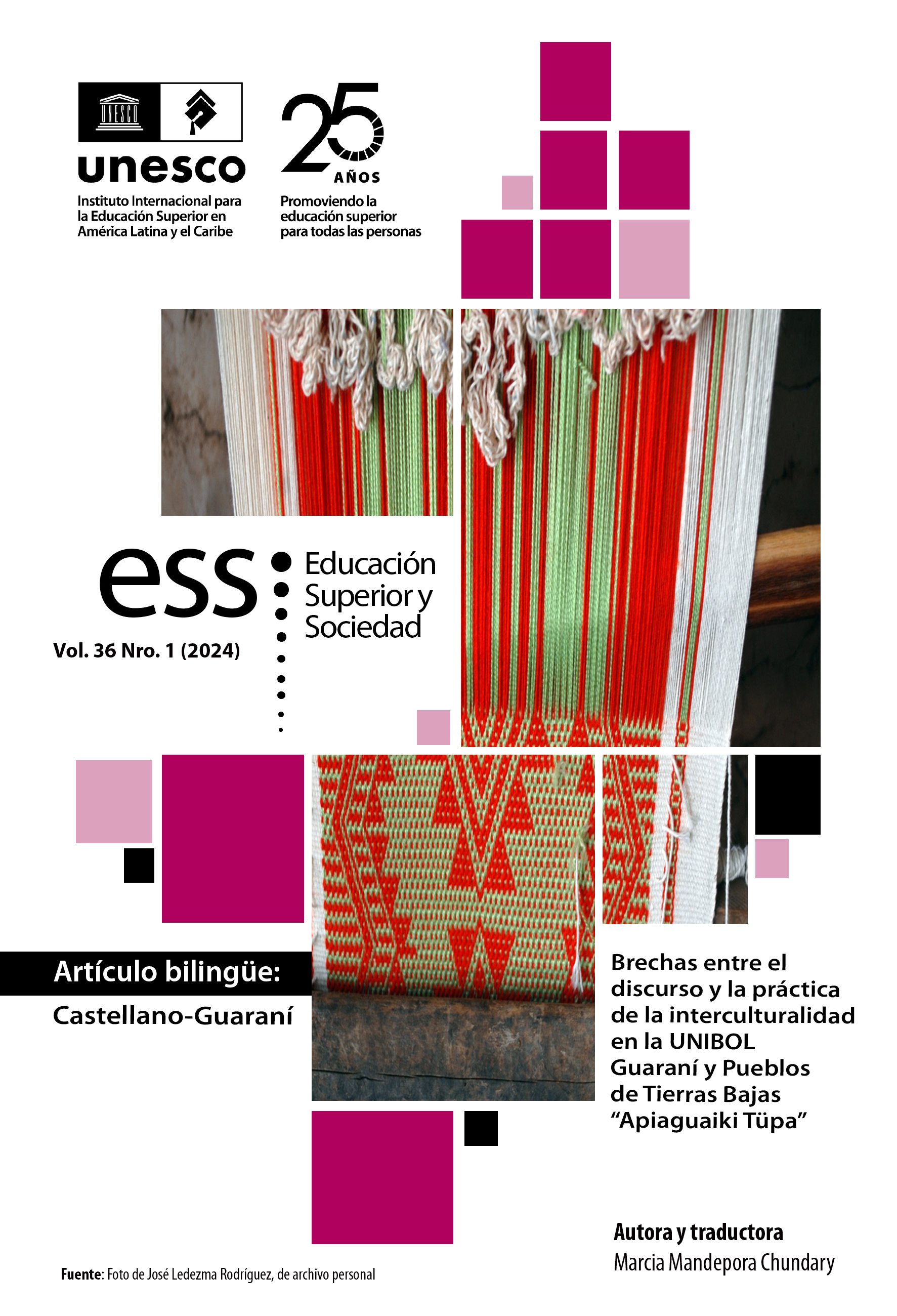Gaps between the discourse and practice of interculturality in the UNIBOL Guaraní and lowland peoples “Apiaguaiki Tûpa”
Mombiri opita ñemongeta oyeapovae tekoñeope regua, kerëiko oyeporutavaegui UNIBOL Guarani y Pueblos de Tierras “Apiaguaiki Tüpa”
Abstract
In Bolivia, in 2008, three universities were created jointly called Bolivian Indigenous Community, Intercultural and Productive Universities (UNIBOL). The so-called UNIBOL Aimara and UNIBOL Quechua were created in the highlands of the country, while in the lowlands the UNIBOL Guaraní y de los Pueblos de Tierras Bajas Apiaguaiki Tûpa was founded. These universities originated with the purpose of becoming national referents for the provision of indigenous university professional training committed to the strengthening of cultural identity and the recovery, valuation, development, and dissemination of ancestral knowledge. They were also given the mission of strengthening and developing native and indigenous languages at the oral level. They also ensured that the training process was articulated with the territories and the social, political, and economic demands of indigenous peoples. In order to implement the professional training policy defined by the UNIBOLs, there was a governing body made up of representatives of indigenous organizations, students, teachers, and academic and institutional authorities. As well as with indigenous wise teachers to fulfill the role of liaison between the university and the indigenous organizations. This article analyzes the experiences in the realization of the educational bases, objectives and institutional framework of operation of the UNIBOL Guarani and Lowland Peoples and the limiting factors it faces to move towards an intercultural institutional and academic management.

Copyright (c) 2024 Marcia Mandepora Chundary

This work is licensed under a Creative Commons Attribution-NonCommercial 4.0 International License.
Copyright notice
Copyright allows the protection of original material, and curbs the use of others' work without permission. UNESCO IESALC adheres to Creative Commons licenses in the open access publication of ESS. Specifically, texts published in this journal are subject to a Creative Commons Attribution-NonCommercial 4.0 International (CC BY-NC 4.0) license: ESS is an open access journal, which means that all content is freely available to the user or their institution. Users may read, download, copy, distribute, print, search or link to the full text of the articles, or use them for any other lawful purpose, without asking prior permission from the publisher or the author, always making sure to cite the author. Commercial use is not permitted. ESS requires authors to accept the Copyright Notice as part of the submission process. Authors retain all rights.
The full license can be found at https://creativecommons.org/licenses/by-nc/4.0/
 Attribution - NonCommercial (CC BY-NC 4.0)
Attribution - NonCommercial (CC BY-NC 4.0)
This journal does not charge authors for the submission or processing of articles. The authors of the contributions will receive acknowledgment of receipt that the work has reached the Editorial Team of the Journal.



